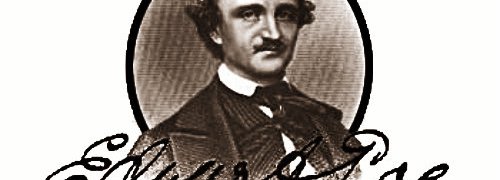
A daguerrotype of Poe made several months before his death in 1849.
Posted By Eliza Strickland.
During the waning months of 1847, Edgar Allan Poe sat at his desk with a tortoiseshell cat draped around his shoulders and dreamed the universe into being.
Poe believed the book he wrote in that feline-festooned state to be his best work, and he expected its impact to resonate through the ages. It did not.
The book, Eureka: A Prose Poem, was largely ignored at the time, and has been dismissed by most Poe scholars as the ramblings of an armchair cosmologist.
Yet in that book, Poe presented a spooky intuitive description of the Big Bang theory more than 70 years before astrophysicists came up with the idea.
At the time, Poe lived in the rural village of Fordham (now part of the Bronx) in a small cottage suffused with a miasma of melancholy.
His beloved wife, Virginia, whom he had taken as a child bride when she was just 13, had died in that cottage earlier in the year, leaving Poe in despair.
With life and death heavy on his mind, he turned his thoughts to the origin of the universe—and to its ultimate fate.
He began by contemplating gravity, which he defined as “the fact that every atom attracts every other atom,��� and he then wondered about the source of that attraction. His startling conclusion was that matter’s natural state is “oneness,” and that the universe began in that state.
But the “primordial particle” was blown apart, seeding space with atoms that long to be reunited. Here’s the key passage in which Poe describes his version of the Big Bang:
Let us now endeavor to conceive what Matter must be, when, or if, in its absolute extreme of Simplicity. Here the Reason flies at once to Imparticularity — to a particle — to one particle — a particle of one kind — of one character — of one nature — of one size — of one form — a particle, therefore, “without form and void” — a particle positively a particle at all points — a particle absolutely unique, individual, undivided, and not indivisible only because He who created it, by dint of his Will, can by an infinitely less energetic exercise of the same Will, as a matter of course, divide it….
The willing into being the primordial particle, has completed the act, or more properly the conception, of Creation. We now proceed to the ultimate purpose for which we are to suppose the Particle created — that is to say, the ultimate purpose so far as our considerations yet enable us to see it — the constitution of the Universe from it, the Particle.
Like this:
Like Loading...
Related



